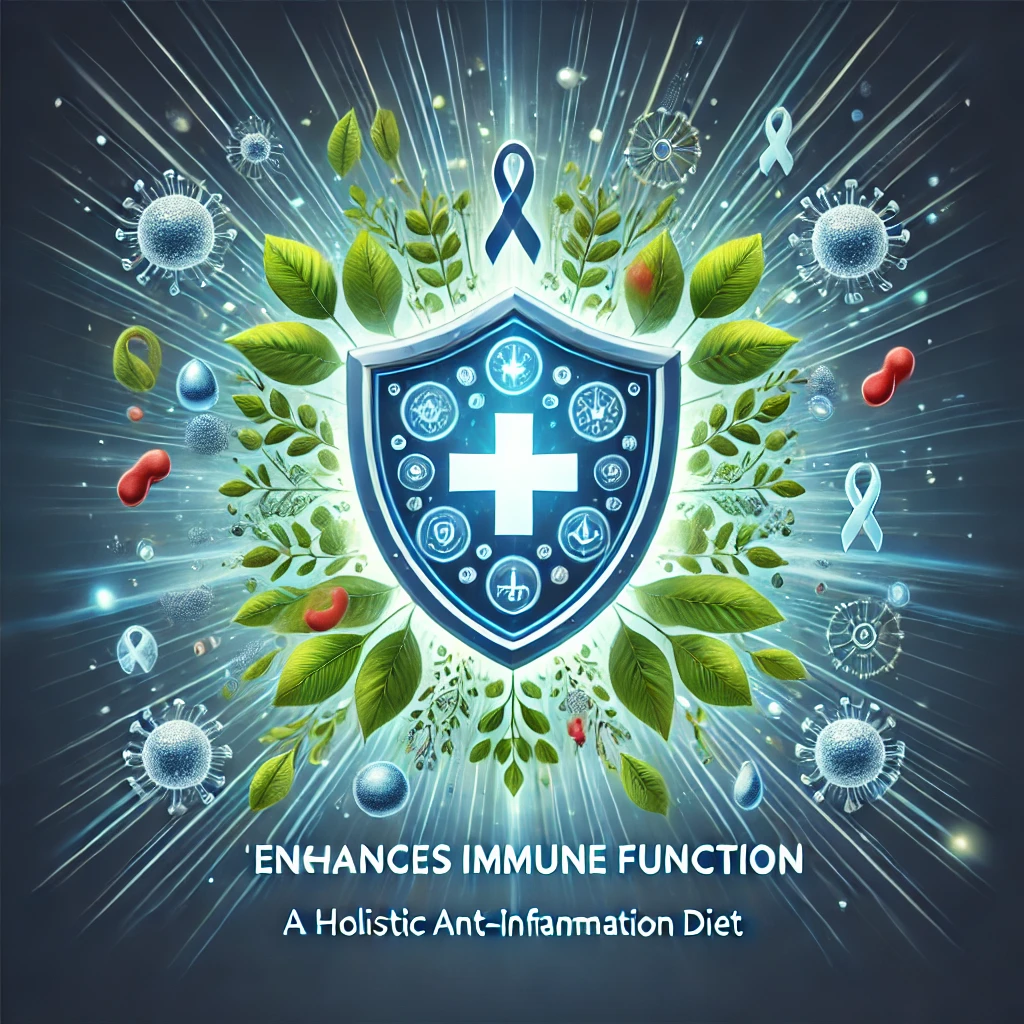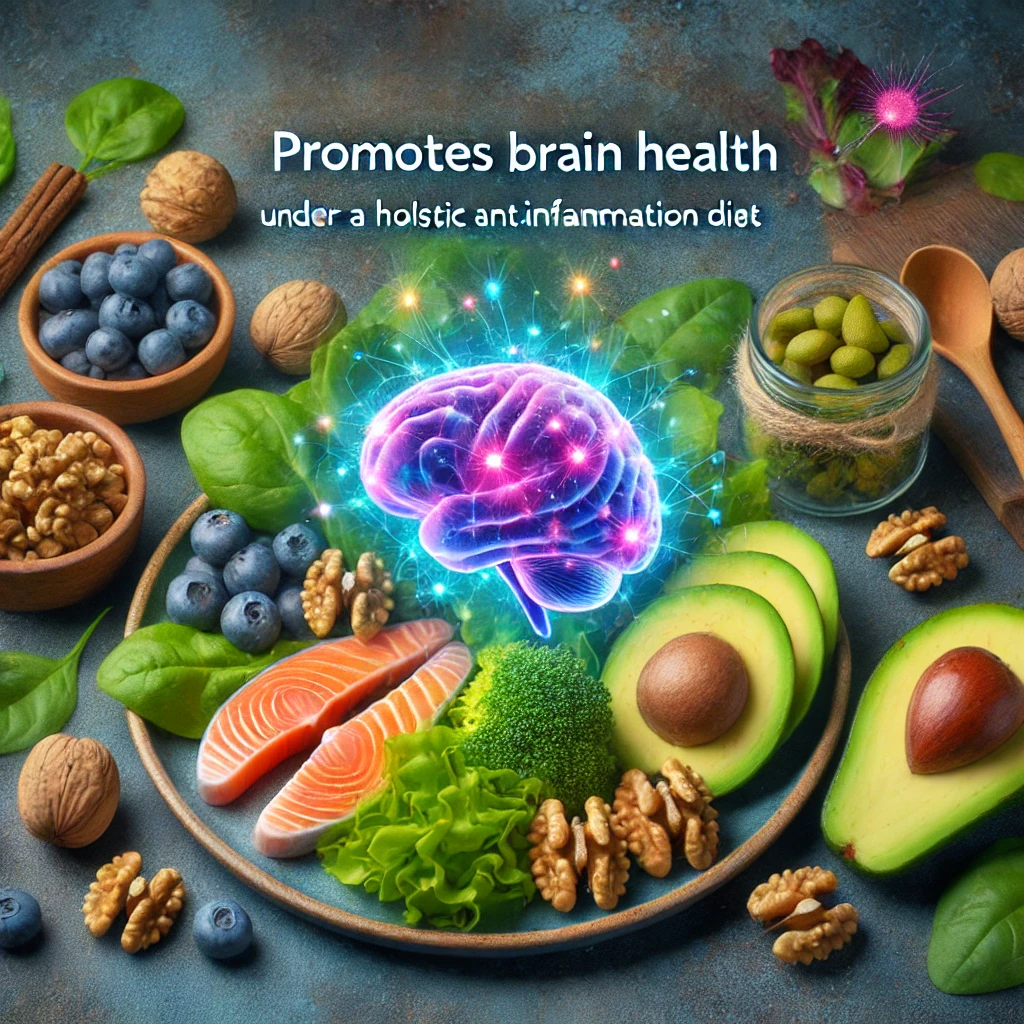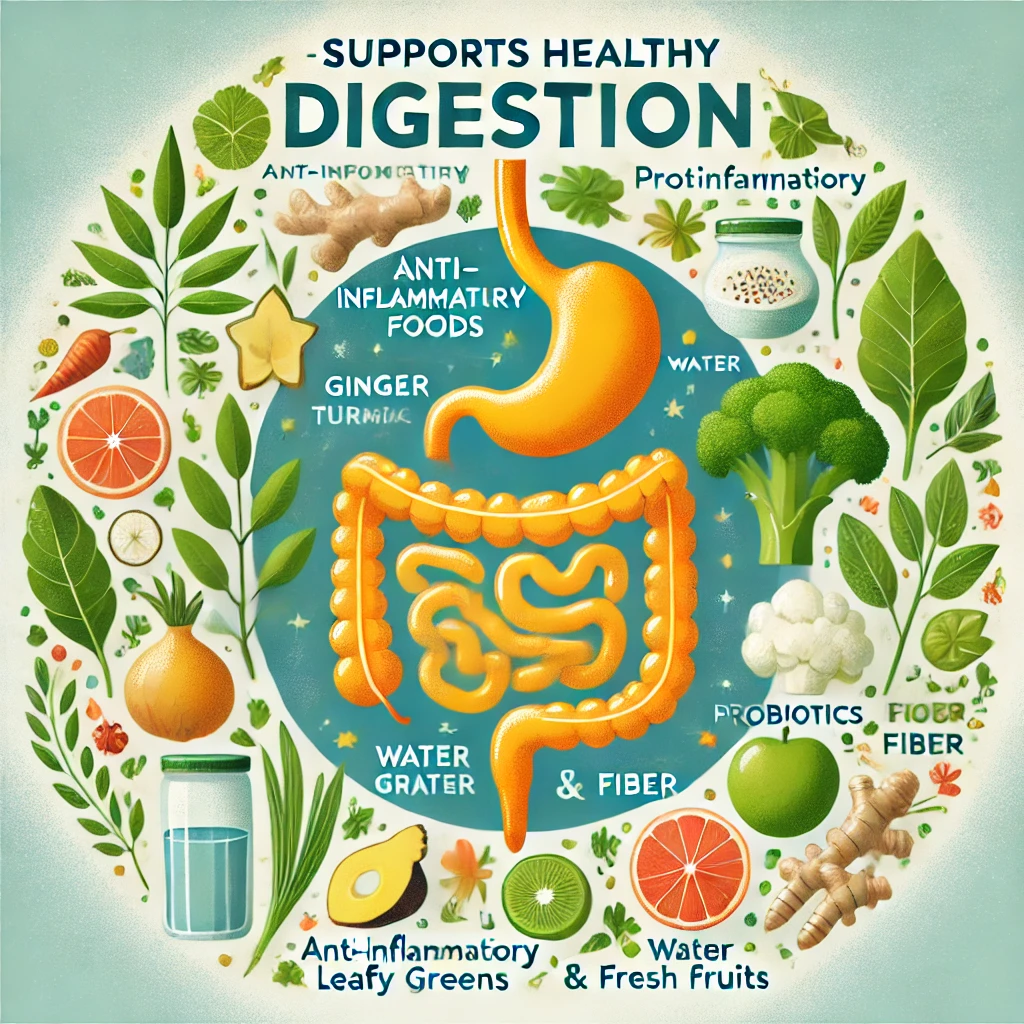discovery-listicles
Top 10 Benefits of a Holistic Anti-Inflammation Diet
A holistic anti-inflammation diet focuses on nourishing the body with whole, nutrient-dense foods that naturally reduce inflammation, support healing, and promote overall health. By taking a comprehensive approach to nutrition, this diet not only addresses inflammation but also enhances well-being on multiple levels. To highlight the advantages of adopting such a diet, we’ve outlined the top ten benefits of a holistic anti-inflammation diet. From improved energy levels and better digestion to reduced risk of chronic diseases, these benefits show how powerful and transformative this dietary approach can be. Discover how embracing a holistic anti-inflammation diet can elevate your health and vitality.
Reduces Chronic Inflammation

Chronic inflammation is a key contributor to many health issues, including heart disease, diabetes, and autoimmune disorders. By incorporating anti-inflammatory foods into your diet, you can help mitigate these risks and promote overall health. Foods rich in antioxidants, omega-3 fatty acids, and fiber work together to lower inflammation levels in the body. Embracing a holistic anti-inflammation diet not only supports your physical well-being but also enhances your vitality and longevity.
Improves Heart Health

A holistic anti-inflammation diet plays a crucial role in enhancing heart health. By emphasizing foods rich in omega-3 fatty acids, fiber, and antioxidants, this dietary approach can help lower cholesterol levels, reduce blood pressure, and improve circulation. Incorporating heart-healthy foods such as fruits, vegetables, whole grains, and healthy fats supports the cardiovascular system and promotes overall well-being. Prioritizing these foods can lead to a stronger heart and a reduced risk of heart disease, allowing you to lead a healthier, more active life.
Enhances Immune Function

A holistic anti-inflammation diet is vital for strengthening your immune system. By incorporating nutrient-dense foods rich in vitamins, minerals, and antioxidants, this dietary approach helps support immune responses and protect against illness. Foods such as fruits, vegetables, nuts, and seeds are packed with essential nutrients that boost immunity and promote overall health. Adopting this diet can enhance your body’s ability to ward off infections and reduce the risk of chronic diseases, ensuring you stay healthy and resilient.
Aids in Weight Management

A holistic anti-inflammation diet can significantly aid in weight management by focusing on whole, nutrient-dense foods that nourish the body and promote satiety. By incorporating a variety of fruits, vegetables, lean proteins, and healthy fats, this dietary approach helps regulate appetite and reduce cravings. The emphasis on fiber-rich foods not only supports digestive health but also contributes to a feeling of fullness, making it easier to maintain a healthy weight. Adopting this diet can lead to sustainable weight loss and improved overall well-being.
Promotes Brain Health

A holistic anti-inflammation diet is essential for promoting optimal brain health and cognitive function. By prioritizing foods rich in omega-3 fatty acids, antioxidants, and vitamins, this dietary approach helps protect the brain from oxidative stress and inflammation. Incorporating ingredients such as fatty fish, berries, leafy greens, and nuts can enhance memory, improve focus, and reduce the risk of neurodegenerative diseases. Embracing this diet not only supports mental clarity and cognitive vitality but also fosters long-term brain health as you age.
Balances Blood Sugar Levels

A holistic anti-inflammation diet is effective in balancing blood sugar levels, which is crucial for overall health and energy stability. By focusing on whole, unprocessed foods that are high in fiber and low in refined sugars, this dietary approach helps regulate insulin response and prevents spikes in blood sugar. Incorporating foods such as whole grains, legumes, fruits, and vegetables can provide a steady release of energy throughout the day. Adopting this diet not only supports stable blood sugar levels but also reduces the risk of developing insulin resistance and type 2 diabetes.
Improves Skin Health

A holistic anti-inflammation diet can significantly enhance skin health by providing essential nutrients that nourish and protect the skin. Foods rich in antioxidants, vitamins, and healthy fats help combat oxidative stress and reduce inflammation, leading to a more radiant complexion. Incorporating fruits, vegetables, nuts, and seeds into your diet supports skin elasticity, hydration, and overall appearance. Embracing this diet not only promotes clear and healthy skin but also helps prevent common skin issues such as acne, eczema, and premature aging.
Enhances Mood and Reduces Stress

A holistic anti-inflammation diet can play a key role in improving mood and reducing stress levels. By incorporating foods rich in omega-3 fatty acids, antioxidants, and vitamins like B-complex, this dietary approach supports brain function and emotional well-being. Nutrient-dense foods such as leafy greens, fatty fish, and whole grains help regulate mood-enhancing neurotransmitters like serotonin and dopamine. Following this diet can lead to reduced anxiety, improved mental clarity, and a greater sense of calm, fostering emotional balance and resilience against daily stressors.
Promotes Healthy Aging

A holistic anti-inflammation diet is instrumental in promoting healthy aging by providing essential nutrients that support cellular health and longevity. Foods rich in antioxidants, healthy fats, and vitamins help combat oxidative stress and inflammation, which are key factors in the aging process. Incorporating a variety of fruits, vegetables, whole grains, and lean proteins can enhance vitality, improve mobility, and support cognitive function as you age. Embracing this diet not only fosters physical health but also enhances overall quality of life, allowing for a more active and fulfilling lifestyle in later years.
Supports Healthy Digestion

A holistic anti-inflammation diet supports healthy digestion by focusing on fiber-rich foods that promote gut health and regularity. Whole grains, fruits, vegetables, and legumes provide essential fiber, which aids in digestion and helps prevent constipation. Additionally, anti-inflammatory foods like yogurt, fermented vegetables, and leafy greens nourish the gut microbiome, improving overall digestive function. Adopting this diet can reduce bloating, improve nutrient absorption, and enhance overall gut health, contributing to better digestive well-being.

